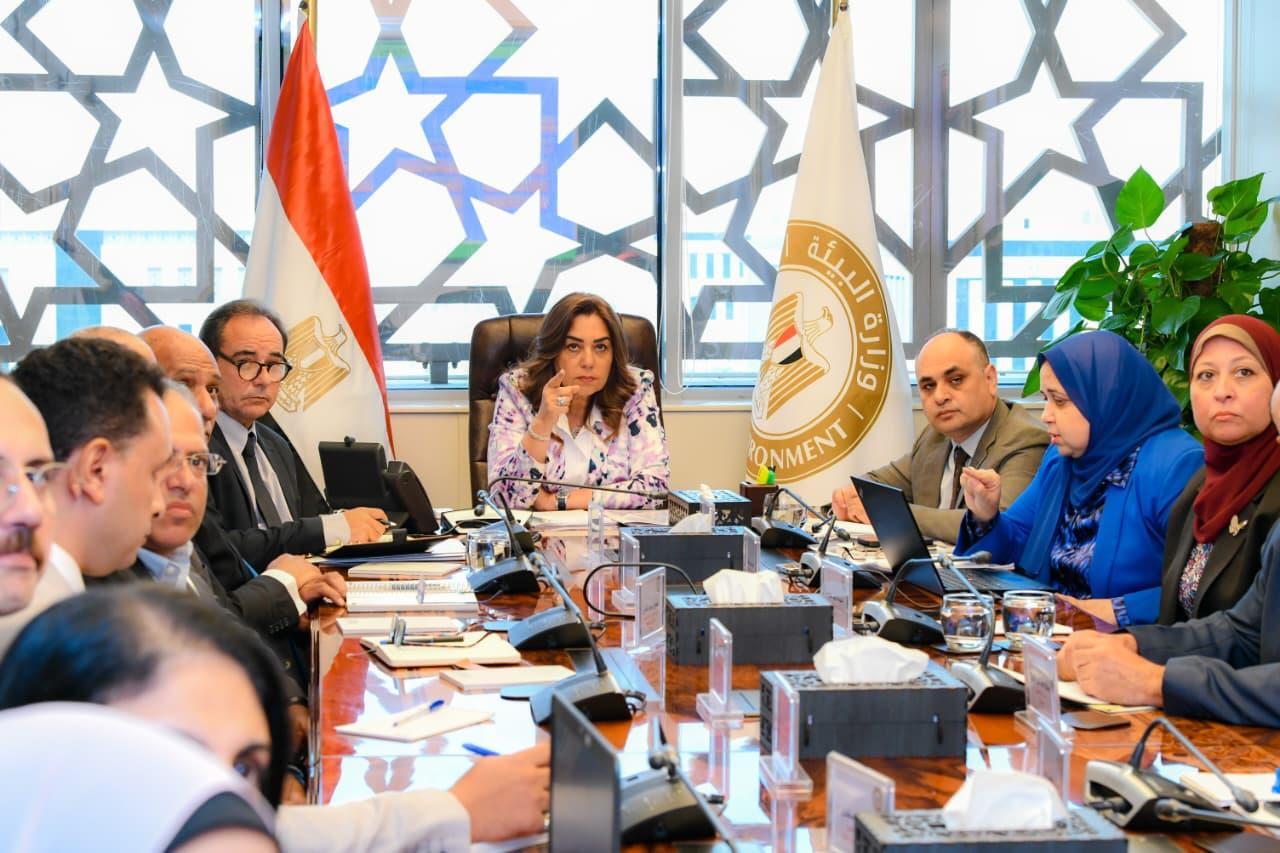Egypt Intensifies Climate Action Ahead Of COP30 In Brazil
During the meeting, Awad emphasized that the Central Department for Climate Change plays a pivotal role in advancing Egypt's climate commitments and strengthening coordination with both domestic and international partners. She underscored the urgency of equipping climate units across government ministries with the necessary training to accelerate the implementation of climate adaptation and mitigation measures.
The Ministry of Environment presented an assessment report evaluating how various ministries are addressing climate change. The report also introduced a guiding framework to help institutions align their sectoral action plans with Egypt's National Climate Change Strategy 2050. In parallel, the ministry has begun developing an adaptation framework for the governorates of Qena and Kafr El-Sheikh, in partnership with Germany's GIZ.
Ali Abu Senna, head of the Egyptian Environmental Affairs Agency, noted that the ministry is currently digitizing its monitoring, reporting, and verification (MRV) system to track greenhouse gas emissions across key sectors including energy, agriculture, industry, and waste. The system also monitors climate adaptation and mitigation efforts, while documenting extreme weather events-such as heatwaves, cold spells, and unseasonal rainfall-and their impacts on vulnerable sectors, particularly agriculture.
Sharif Abdel Rahim, Assistant to the Minister for Climate Policy, highlighted the significance of Egypt's interactive climate risk map. This tool identifies areas most vulnerable to climate risks and serves as a critical input for development planning. He reaffirmed Egypt's commitment to its international climate obligations and the implementation of its Nationally Determined Contributions (NDCs).
Soha Taher, Head of the Central Department for Climate Change, outlined several key donor-supported initiatives currently underway. These include the EU-funded“EU Green” programme, the French Development Agency–backed Transformation of Financial Systems for Climate in Egypt project, and the ongoing preparation of Egypt's first Biennial Transparency Report (1BTR) and Fifth National Communication (5NC) to the UN Framework Convention on Climate Change, supported by the Global Environment Facility.
Egypt has thus far submitted three National Communications, in 1999, 2010, and 2016, and a Biennial Update Report in 2019. A fourth National Communication is currently under preparation. In June 2023, Egypt also updated its NDCs to reflect a more ambitious target of generating 42% of its electricity from renewable sources by 2030.

Legal Disclaimer:
MENAFN provides the
information “as is” without warranty of any kind. We do not accept
any responsibility or liability for the accuracy, content, images,
videos, licenses, completeness, legality, or reliability of the information
contained in this article. If you have any complaints or copyright
issues related to this article, kindly contact the provider above.
Most popular stories
Market Research

- Microgrid Market Growth, Key Trends & Future Forecast 2033
- Nickel Market Estimated To Exceed USD 55.5 Billion By 2033
- Primexbt Launches Empowering Traders To Succeed Campaign, Leading A New Era Of Trading
- Chaingpt Pad Unveils Buzz System: Turning Social Hype Into Token Allocation
- Ecosync & Carboncore Launch Full Stages Refi Infrastructure Linking Carbon Credits With Web3
- Japan Halal Food Market Size To Surpass USD 323.6 Billion By 2033 With A CAGR Of 8.1%






















Comments
No comment